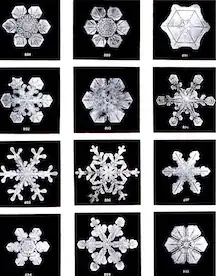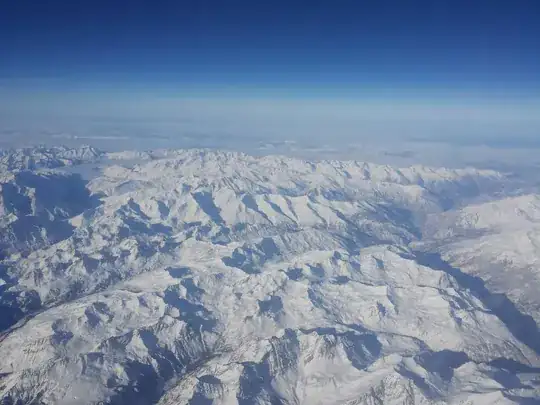It's often been told to me that all snowflakes are unique. It's led to the phrase "special snowflake" to describe something or someone who is unique/distinct from all others. Even Wikipedia states:
Snowflakes are also seen as a symbol of uniqueness as no two are perfectly identical.
From Wikipedia's article "Snowflake". This quote has since been removed as being "unverifiable"
I've been thinking about this for awhile. There have historically been a lot of snowflakes. Every day, an inconceivably large number of snowflakes are created and dispersed around Earth.
Throughout Earth's history, there have been an inconceivably large number of snowstorms, each also depositing its own inconceivably large number of snowflakes onto Earth.
It's even highly possible that, for hundreds of millions of years of Earth's past, it's been nearly or entirely frozen.
Aside from sub-micrometer positioning (even two identical iPhone units are off by a number of nanometers), I find it very difficult to believe that of all the snowflakes that fall in a storm, no two are alike. I find it exceedingly difficult to believe that all snowflakes throughout Earth's history have been completely distinct from each other.
As I went to research this, all the claims that all snowflakes are unique come from studies of up to thousands of snowflakes. If I clean the snow off my car after a snowstorm, I will have discarded more snowflakes than have appeared in total across all these studies I've seen.
It seems this all originated in the late 19th Century, when photographer and scientist Wilson Bentley attempted to study and catalog snowflakes. While he did some useful work, I suspect his claim that they are all unique was clouded by his loudly-professed love for snowflakes.
So can it be true? Can all snowflakes truly be completely distinct from each other down to the micrometer?
Some research I did before writing this question:
- The history of snowflake research
- Wilson Bentley
- Ukichiro Nakaya
- Micrographia by Robert Hooke


